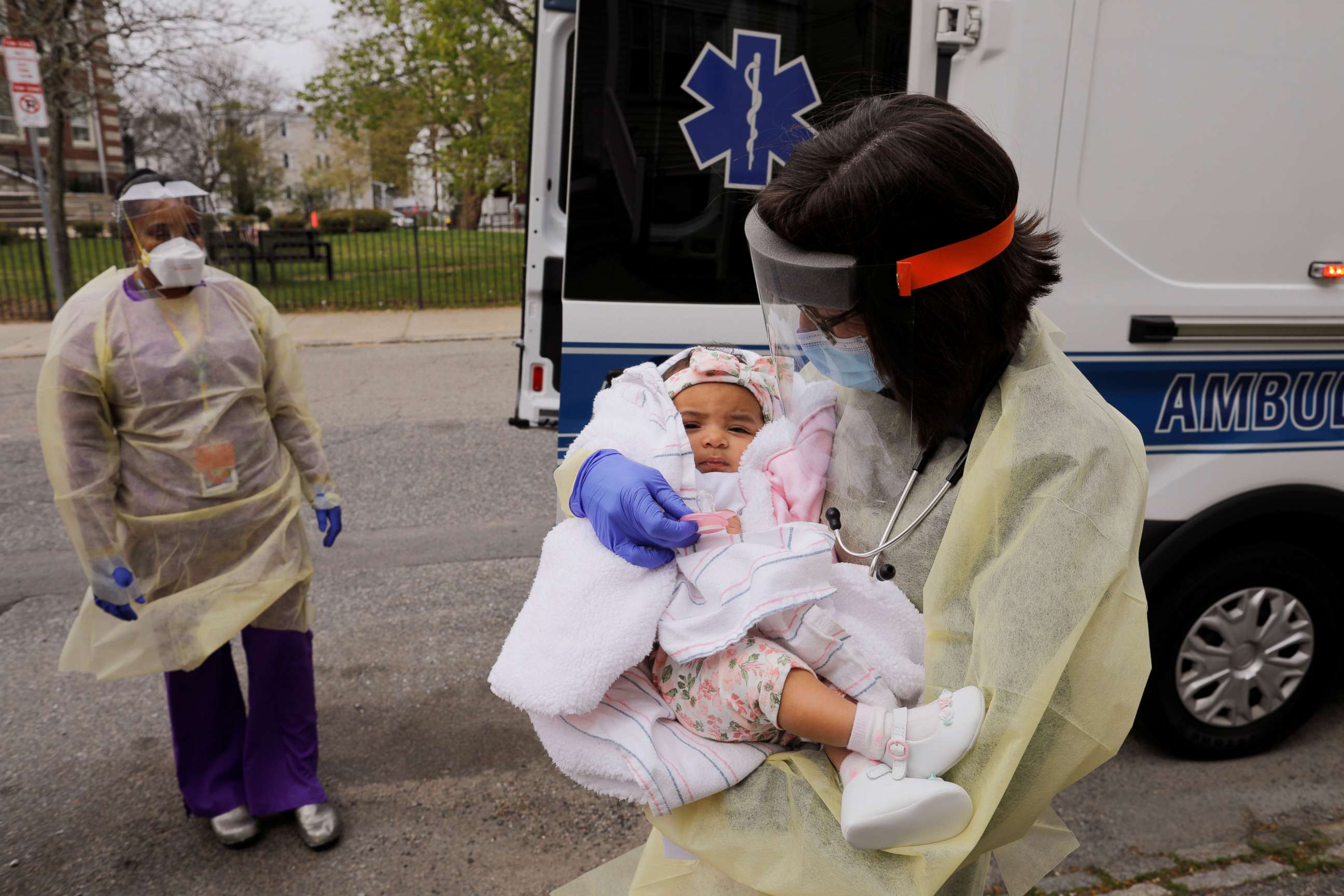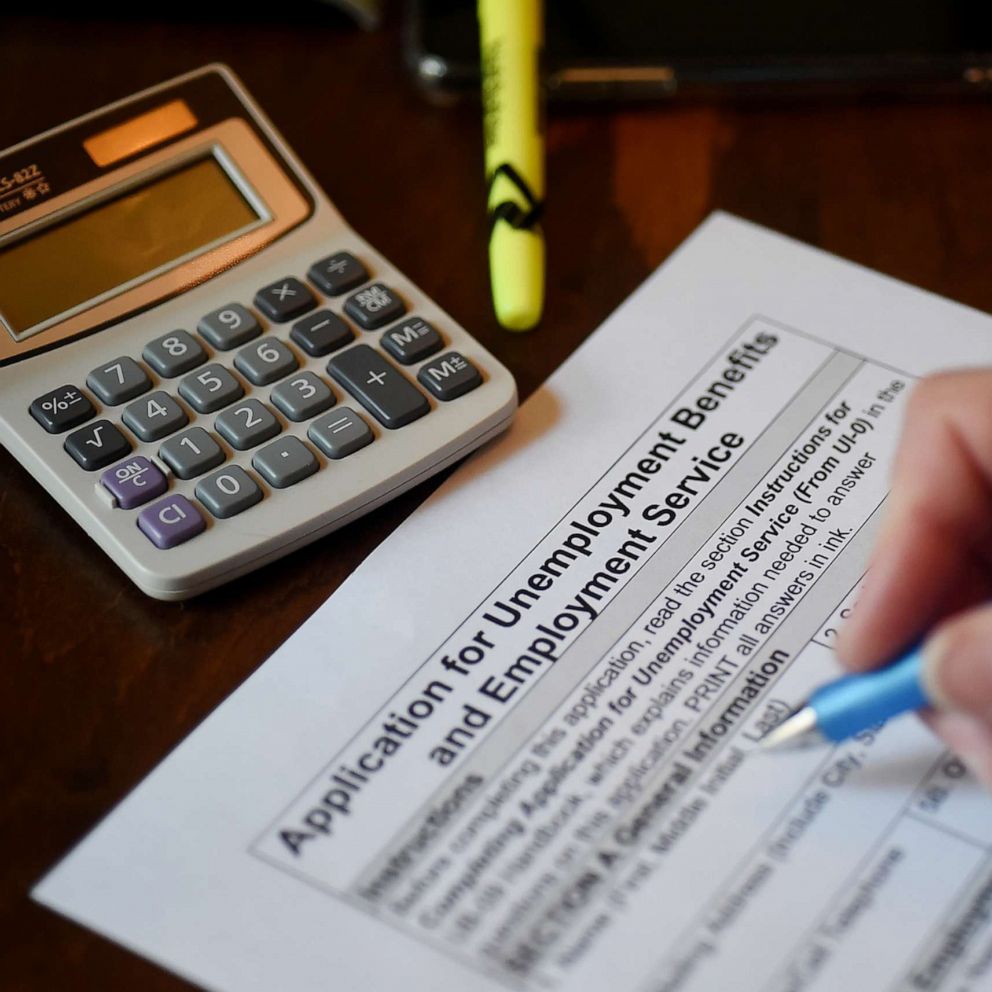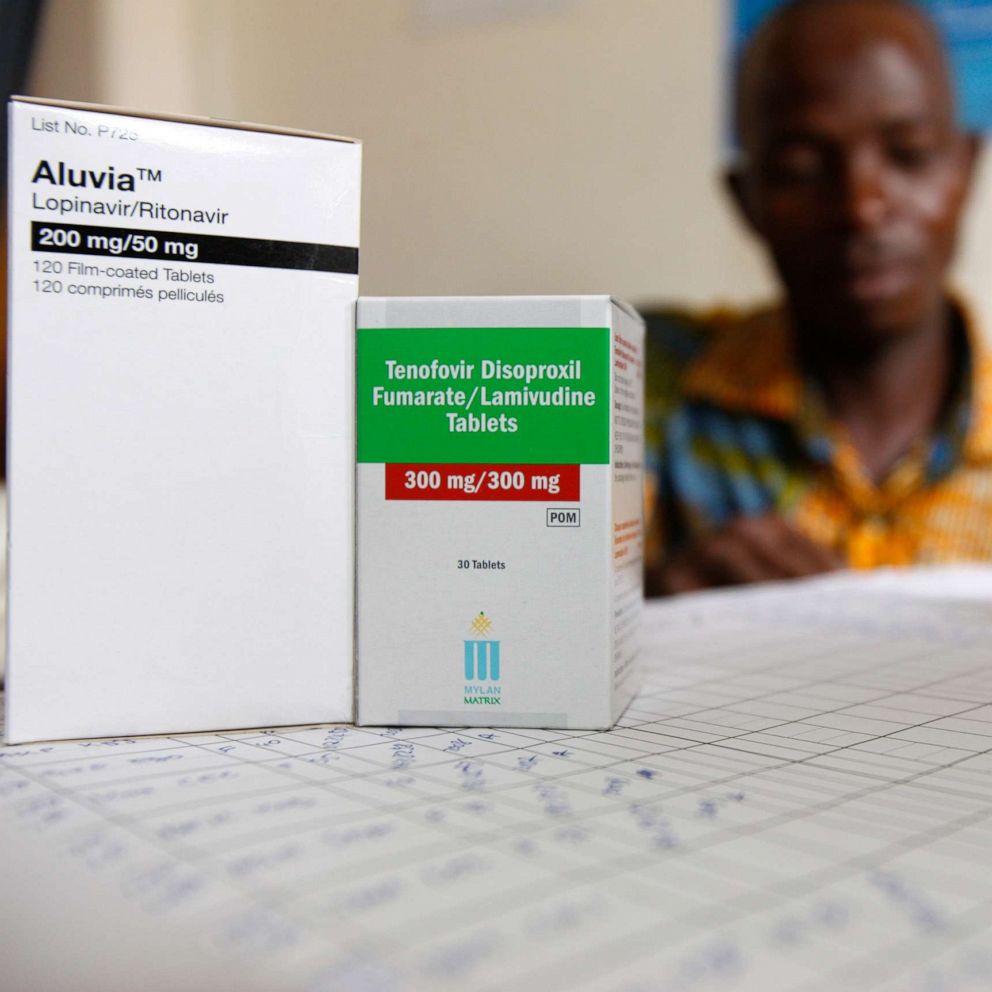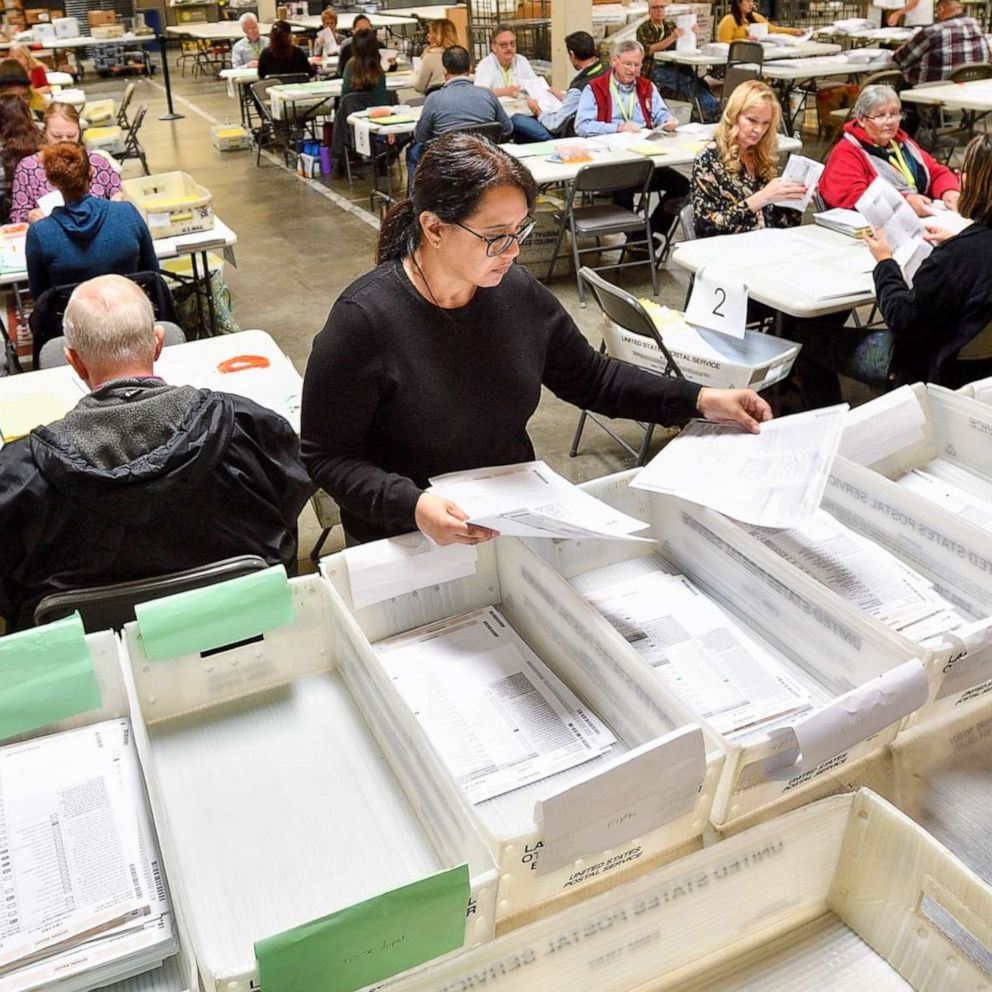Joint Chiefs of Staff member gets conflicting coronavirus test results
Gen. Joseph Lengyel received both a positive and negative COVID-19 test result.
The novel coronavirus pandemic has now killed more than 281,000 people worldwide.
More than 4 million people across the world have been diagnosed with COVID-19, the disease caused by the new respiratory virus, according to data compiled by the Center for Systems Science and Engineering at Johns Hopkins University. The actual numbers are believed to be much higher due to testing shortages, many unreported cases and suspicions that some governments are hiding the scope of their nations' outbreaks.
Since the first cases were detected in China in December, the United States has become the worst-affected country, with more than 1.3 million diagnosed cases and at least 79,058 deaths.

Sunday's biggest developments:
Here's how the news developed Sunday. All times Eastern.
8:56 p.m.: Member of Joint Chiefs gets conflicting results on COVID test
General Joseph Lengyel, the Chief of the National Guard Bureau and a member of the Joint Chiefs of Staff, will receive a third test for the coronavirus on Monday after he received conflicting test results on Saturday, according to a U.S. official.
The general tested positive for COVID-19 Saturday afternoon but a subsequent test Saturday was negative, according to a Pentagon spokesperson.
Meanwhile, Admiral Mike Gilday, the Chief of Naval Operations and another member of the Joint Chiefs, will self-quarantine for a week after coming into contact with a family member who tested positive for the virus.
Gilday tested negative for COVID-19, but a U.S. official told ABC News that he will self-quarantine for the next week out of an abundance of caution. He did not attend the Joint Chiefs meeting with President Donald Trump at the White House on Saturday night as he awaited the results of a test taken on Friday, said the official.
Lengyel did not attend Saturday night’s meeting either, and neither of the two senior military officials was seen in an official photo of Trump’s meeting on Saturday with the Joint Chiefs of Staff, Secretary of Defense Mark Esper, and other top officials.
2:57 p.m.: Fauci, 3 others to testify by videoconference at hearing
All four administration witnesses scheduled to testify before the Senate Health Committee this week will appear by videoconference out of "an abundance of caution," the committee chairman said Sunday.
Three of the four witnesses are in some form of quarantine after possibly being exposed to COVID-19: Dr. Anthony Fauci, the director of the National Institute of Allergy and Infectious Diseases (NIAID); Dr. Robert Redfield, director of the Centers for Disease Control and Prevention; and FDA Commissioner Stephen Hahn.
A fourth witness, Dr. Brett Giroir, is also scheduled to testify at Tuesday's Senate Health Committee hearing about the government response to COVID-19.
The quarantine measures follow the discovery of two known coronavirus cases at the White House, including the vice president's press secretary.
The NIAID said Fauci tested negative for COVID-19 and is considered to be "at relatively low risk based on the degree of his exposure." Fauci, whose quarantine was described as "modified," initially was expected to show up to the Senate for his testimony on Tuesday. But, "after consulting with Dr. Fauci, and in an abundance of caution for our witnesses, senators, and the staff, all four administration witnesses will appear by videoconference due to these unusual circumstances," Senate Health Committee Chairman Lamar Alexander said in a statement.
2:15 p.m.: UK to begin easing lockdown restrictions
The United Kingdom will begin easing lockdown restrictions this week, Prime Minister Boris Johnson said Sunday during a prerecorded telecast.
The leader announced several steps in reopening, contingent on keeping the transmission rate (R) below 1.
Johnson urged residents to continue to work from home if they can, but people who can't, such as those in construction or manufacturing, should go to work this week, Johnson said. He encouraged those workers to avoid public transportation and instead travel by car, walking or bicycle.
Starting Wednesday, residents will be able to participate in "unlimited amounts" of outdoor activity, Johnson said, including sunbathing and playing sports with members of their own household. People must continue to obey social distancing guidelines; fines for breaking the rules will be increased, Johnson said, though he did not specify the amount.
By June 1, the U.K. may be in a position to begin reopening shops and schools, starting with reception, year 1 and year 6, Johnson said. Secondary pupils facing exams next year will get at least some time with their teachers before the holidays.
Some of the hospitality industry and other public places may open by July at the earliest, Johnson said.
"Throughout this period, over the next two months, we will be driven not by mere hope or economic necessity. We're going to be driven by the science, the data and public health," Johnson said. "All of this is conditional. It all depends on a series of big ifs. It depends on all of us, the entire country, to follow the advice and observe social distancing and to keep that R down."
The prime minister also announced a new COVID alert system determined by the transmission rate and the number of cases. Level 1 indicates COVID-19 is no longer present in the U.K., while level 5 indicates there is a risk of the virus overwhelming the National Health System. The U.K. is currently at level 4, Johnson said.
"That COVID alert level will tell us how tough we have to be in our social-distancing measures," Johnson said. "The lower the level, the fewer the measures. The higher the level, the tougher and stricter we will have to be."
The U.K.'s transmission rate is "potentially only just below 1," Johnson said, somewhere between .5 and .9.
The prime minister also said the U.K. will enact a quarantine on people traveling into the country, but did not say when that would start.
The U.K. recorded an additional 269 deaths in the last 24 hours, bringing the country's death total to 31,855, according to the Department of Health and Social Care. There have been 219,183 who have tested positive in the U.K.
1:02 p.m.: France, Spain report low daily death tolls ahead of phased reopening
France and Spain have reported their lowest daily COVID-19 deaths in over a month. The numbers come one day before both countries loosen restrictions on their lockdowns.
France's health ministry reported Sunday there were 70 COVID-19 deaths in one day, bringing the total to 26,380. There are 176,782 diagnosed cases in the country, according to Johns Hopkins University.
Starting Monday, small shops and markets in France can open with limits on capacity. Groups of up to 10 people inside or outside will be allowed. Many schools will reopen on Tuesday. Bars, restaurants, cafes and large museums will remain closed.
Spain has the second-highest number of COVID-19 cases in the world with 223,578, according to Johns Hopkins. The country had 143 deaths in one day, for a total of 26,621, Spain's health ministry reported on Sunday.
Starting Monday, 51% of the nation will start to reopen, with regions not hit hard by the virus able to open small businesses, hotels and churches with limited occupancy. Dine-in restaurants, museums, cinemas, theaters and schools will remain closed.
12:20 p.m.: New York launches new nursing home procedures
Nursing home staffs in New York state must be tested for COVID-19 twice a week, Gov. Andrew Cuomo announced Sunday at his daily briefing.
Additionally, hospitals can only discharge patients to nursing homes if they test negative for COVID-19.
If a nursing home cannot provide adequate care for a COVID-positive resident, such as staffing, facilities or equipment, it must call the state health department to transfer the resident.
If the facilities don't follow the procedures, they will lose their license, the governor said.
"One of our top priorities is protecting people in nursing homes and seniors," Cuomo said Sunday. "This is where this virus feeds. It's where this virus started."
Nursing homes have been especially hit hard by the coronavirus. New York leads the nation in the number of coronavirus deaths in nursing homes and long-term care facilities, according to The Associated Press, accounting for a fifth -- about 5,300 -- of the nation's more than 26,000 deaths.
New York has the highest population of nursing home residents in any state, with 101,518, and ranks 34th in the U.S. for the percentage of deaths in nursing homes, Cuomo noted Sunday.
The governor also noted at the briefing that the state's health department is now investigating 85 cases of a COVID-related inflammatory illness in children. The condition, known as Pediatric Multi-System Inflammatory Syndrome, has similar symptoms to Kawasaki disease. Two additional deaths are also being investigated, Cuomo said.
11 a.m.: Unlikely COVID-19 will be eradicated without vaccine, chief science officer says
Johnson & Johnson's chief scientific officer says it's unlikely the coronavirus will be eradicated without a vaccine.
Dr. Paul Stoffels, appearing on ABC's "This Week" on Sunday, responded to comments from President Donald Trump last week that, "With or without a vaccine, it's going to pass, and we're going to be back to normal."
"(It) would be great if the disease goes away very quickly, but we don't think so," Stoffels told ABC News chief anchor George Stephanopoulos. "It's now spreading around the world so fast."
On March 30, Johnson & Johnson announced that it had selected a leading coronavirus vaccine candidate and the company anticipates beginning human trials on it by September 2020.
The company has partnered with the U.S. government to develop a vaccine, with the Trump administration awarding a grant of nearly half a billion dollars to aid their research.
While Johnson & Johnson says the typical vaccine development process takes five to seven years, the company has admitted they are moving on a "substantially accelerated timeframe" to find a vaccine.
Johnson & Johnson said they plan to have a billion doses of the vaccine available once it is developed.
10:30 a.m.: 38 NYC children suffering inflammatory illness possibly related to COVID-19
There are 38 children in New York City suffering from an inflammatory illness that is possibly related to COVID-19, Mayor Bill de Blasio said at his daily press briefing on Sunday.
The condition, called Pediatric Multi-System Inflammatory Syndrome by health officials, has similar symptoms to Kawasaki disease.
There are 9 additional cases in New York City that are pending and 1 death.
Parents of more than 1 million children have been alerted, de Blasio said. The state's health department issued an advisory to health care providers on Wednesday.
"Thankfully most children with COVID-19 only experience mild symptoms, but in some, a dangerous inflammatory syndrome can develop," Dr. Howard Zucker, commissioner of the New York State Department of Health, said in a statement last week.
"In the United Kingdom, a possible link has also been reported between pediatric COVID-19 and serious inflammatory disease," New York health officials said. "The inflammatory syndrome has features which overlap with Kawasaki disease and toxic shock syndrome and may occur days to weeks after acute COVID-19 illness. It can include persistent fever, abdominal symptoms, rash, and even cardiovascular symptoms requiring intensive care."
Meanwhile, de Blasio said he's asked the federal government to provide 39,000 doses of the experimental drug, remdesivir. On May 1, the Food and Drug Administration authorized the emergency use of remdesivir to treat COVID-19.
As of now, New York only has 4,000 doses, the mayor said.
9:20 a.m.: 'Glimmer of hope' within record job loss numbers, Trump advisor says
Larry Kudlow, the director of the U.S. National Economic Council, attempted to put a positive spin on components of an April jobs report that showed a record number of jobs were lost and the U.S. unemployment rate jumped over 10 points, amid the coronavirus pandemic, arguing that the havoc wreaked by the outbreak might not be permanent.
"Inside the numbers is a glimmer of hope," Kudlow said in an interview on ABC's "This Week" Sunday morning, adding that "80% of it was furloughs and temporary layoffs. That, by the way, doesn't assure that you will go back to a job, but it says strongly that the accord between the worker and the business is still intact."
The U.S. economy lost a staggering 20.5 million jobs in April, pushing the unemployment rate to 14.7% according to data released Friday by the U.S. Bureau of Labor Statistics.
ABC’s Mark Remillard reports for ABC News Radio:







